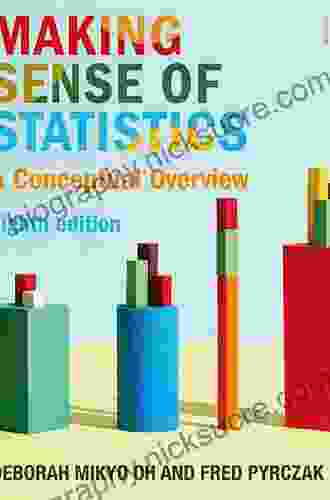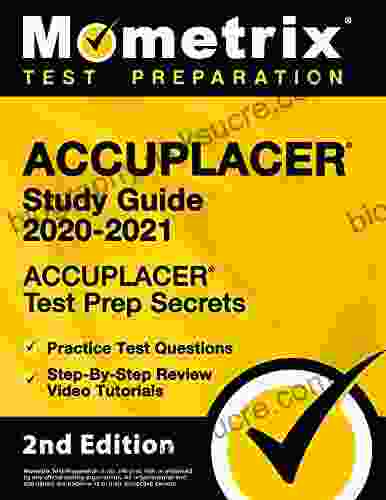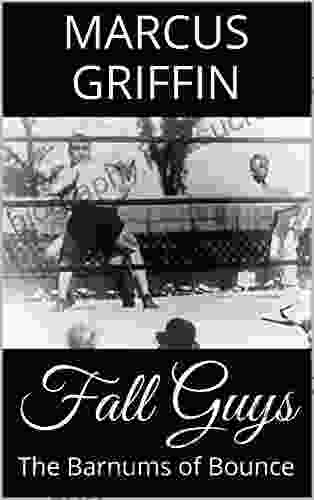Non-Mathematical Approach to Macmillan Study Skills: A Comprehensive Guide to Enhancing Learning Without Numbers

In the realm of education, it is often assumed that mathematics is an essential foundation for success in learning. However, for many students, the traditional mathematical approach to study skills can be daunting, uninspiring, and even counterproductive. Enter the non-mathematical approach to Macmillan Study Skills, a revolutionary method that empowers learners of all ages and abilities to excel in their studies without relying on complex mathematical formulas or calculations.
4 out of 5
| Language | : | English |
| File size | : | 2222 KB |
| Text-to-Speech | : | Enabled |
| Screen Reader | : | Supported |
| Enhanced typesetting | : | Enabled |
| Print length | : | 230 pages |
What is the Non-Mathematical Approach?
The non-mathematical approach to Macmillan Study Skills is a holistic approach that emphasizes the development of cognitive skills such as visualization, memory, and critical thinking. It recognizes that learning is not solely dependent on mathematical abilities, but rather on a wide range of cognitive processes that can be enhanced through various non-mathematical strategies.
Key Strategies of the Non-Mathematical Approach
- Visualization: Creating mental images and diagrams to represent information in a visually appealing and memorable way.
- Mnemonics: Using memory aids such as rhymes, acronyms, or songs to facilitate memorization.
- Active Learning: Engaging in hands-on activities, discussions, and problem-solving exercises to actively construct knowledge and improve understanding.
- Metacognition: Reflecting on one's own learning process, identifying strengths and weaknesses, and adjusting strategies accordingly.
- Self-Regulation: Managing one's time, setting goals, and maintaining motivation throughout the learning journey.
Benefits of the Non-Mathematical Approach
The non-mathematical approach offers numerous benefits for students, including:
- Enhanced Memory: Visualization and mnemonics help students encode and retrieve information more effectively.
- Improved Comprehension: Active learning and metacognition foster deeper understanding and critical thinking skills.
- Reduced Anxiety: A non-mathematical approach can alleviate anxiety for students who struggle with math, creating a more positive and supportive learning environment.
- Increased Engagement: Engaging strategies such as visualization and active learning captivate students and make learning more enjoyable.
- Inclusive Education: The non-mathematical approach caters to students of all abilities, including those with learning disabilities or math anxiety.
Applications of the Non-Mathematical Approach
The non-mathematical approach to Macmillan Study Skills can be applied to a wide range of subjects and learning contexts, including:
- Reading Comprehension: Using visualization and mnemonics to understand and retain complex texts.
- Writing Skills: Employing active learning strategies such as brainstorming and peer review to enhance writing fluency and organization.
- Science and Social Studies: Creating visual representations and diagrams to grasp abstract concepts and historical events.
- Foreign Language Learning: Using mnemonics to memorize vocabulary and grammar rules, and active learning to practice speaking and listening skills.
- Career Development: Applying metacognitive and self-regulation strategies to set goals, manage time, and continuously improve professional skills.
The non-mathematical approach to Macmillan Study Skills is a powerful and inclusive approach to learning that empowers students of all ages and abilities to achieve academic success. By embracing strategies such as visualization, mnemonics, active learning, and self-regulation, students can enhance their memory, comprehension, engagement, and overall learning outcomes. With its focus on cognitive development and the removal of mathematical barriers, the non-mathematical approach creates a supportive and equitable learning environment where every student can thrive.
4 out of 5
| Language | : | English |
| File size | : | 2222 KB |
| Text-to-Speech | : | Enabled |
| Screen Reader | : | Supported |
| Enhanced typesetting | : | Enabled |
| Print length | : | 230 pages |
Do you want to contribute by writing guest posts on this blog?
Please contact us and send us a resume of previous articles that you have written.
 Fiction
Fiction Non Fiction
Non Fiction Romance
Romance Mystery
Mystery Thriller
Thriller SciFi
SciFi Fantasy
Fantasy Horror
Horror Biography
Biography Selfhelp
Selfhelp Business
Business History
History Classics
Classics Poetry
Poetry Childrens
Childrens Young Adult
Young Adult Educational
Educational Cooking
Cooking Travel
Travel Lifestyle
Lifestyle Spirituality
Spirituality Health
Health Fitness
Fitness Technology
Technology Science
Science Arts
Arts Crafts
Crafts DIY
DIY Gardening
Gardening Petcare
Petcare Mark Young
Mark Young Nadine Hays Pisani
Nadine Hays Pisani Sam Kean
Sam Kean Ryan A Pedigo
Ryan A Pedigo Kenton Kroker
Kenton Kroker Trish Kuffner
Trish Kuffner Catherine Shainberg
Catherine Shainberg Otto Scharmer
Otto Scharmer Janna Levin
Janna Levin Rachelle Zukerman
Rachelle Zukerman W Scott Elliot
W Scott Elliot Mick Conefrey
Mick Conefrey Mark Kurlansky
Mark Kurlansky J C Cervantes
J C Cervantes Meghan L Marsac
Meghan L Marsac Erica Schultz
Erica Schultz Robert Hogan
Robert Hogan Harvey Wittenberg
Harvey Wittenberg Mina Lebitz
Mina Lebitz Massimo Cossu Nicola Pirina
Massimo Cossu Nicola Pirina Alastair Hannay
Alastair Hannay Dacher Keltner
Dacher Keltner Leon Mccarron
Leon Mccarron Timothy Pakron
Timothy Pakron Robin Mcmillan
Robin Mcmillan Cara Koscinski
Cara Koscinski Steven Bell
Steven Bell Craig Martin
Craig Martin Mark Ellyatt
Mark Ellyatt Leslie Stager
Leslie Stager Kyle Butler
Kyle Butler Cindy Post Senning
Cindy Post Senning Erik J Brown
Erik J Brown Rebecca Rupp
Rebecca Rupp Thomas Bulfinch
Thomas Bulfinch William H Frey
William H Frey Candice Davie
Candice Davie Paul Doiron
Paul Doiron Conor Nolan
Conor Nolan Chuck Missler
Chuck Missler John G Robertson
John G Robertson James Duggan
James Duggan P J Agness
P J Agness Michael Palin
Michael Palin Monta Z Briant
Monta Z Briant Rowan Jacobsen
Rowan Jacobsen Sergei Urban
Sergei Urban Thomas French
Thomas French Dr Michael P Masters
Dr Michael P Masters James M Collins
James M Collins Colleen Alexander Roberts
Colleen Alexander Roberts Brandon Royal
Brandon Royal Ronald Wheeler
Ronald Wheeler Gary Lincoff
Gary Lincoff Grey Owl
Grey Owl Peter Martin
Peter Martin Janis Keyser
Janis Keyser V B Alekseev
V B Alekseev Arnold G Nelson
Arnold G Nelson Richard Harris
Richard Harris Stanislas Dehaene
Stanislas Dehaene Charles Buist
Charles Buist Richard H Immerman
Richard H Immerman T C Edge
T C Edge Mark H Newman
Mark H Newman Jonathan Kellerman
Jonathan Kellerman Chris Mooney
Chris Mooney Steve Biddulph
Steve Biddulph Jeffrey Jensen Arnett
Jeffrey Jensen Arnett William Wasserman
William Wasserman Howard Zinn
Howard Zinn Bill Mckibben
Bill Mckibben Temple West
Temple West John Quick
John Quick Vanessa Ogden Moss
Vanessa Ogden Moss Steven Hawthorne
Steven Hawthorne Rob Pope
Rob Pope Chris Eberhart
Chris Eberhart Beau Bradbury
Beau Bradbury J Bruce Brackenridge
J Bruce Brackenridge Thomas Lumley
Thomas Lumley Chiara Sparks
Chiara Sparks Ron Avery
Ron Avery Spencer Wells
Spencer Wells Jayanti Tambe
Jayanti Tambe James Koeper
James Koeper Suzanne Wylde
Suzanne Wylde Luke Gilkerson
Luke Gilkerson Barry Friedman
Barry Friedman Victor Seow
Victor Seow Samantha Fitts
Samantha Fitts Ernie Morton
Ernie Morton Eugene V Resnick
Eugene V Resnick Laura Pavlov
Laura Pavlov Cynthia Levinson
Cynthia Levinson Marc Loy
Marc Loy Pearson Education
Pearson Education Michael Wood
Michael Wood Marshall Jon Fisher
Marshall Jon Fisher Chadd Vanzanten
Chadd Vanzanten Pavla Kesslerova
Pavla Kesslerova Elliott Vandruff
Elliott Vandruff David Aretha
David Aretha Daniel P Huerta
Daniel P Huerta Gordon H Chang
Gordon H Chang Hongyu Guo
Hongyu Guo Percy Boomer
Percy Boomer Lawrence Baldassaro
Lawrence Baldassaro Ellen Notbohm
Ellen Notbohm Sara Shepard
Sara Shepard Malcolm Hebron
Malcolm Hebron Sean Mcindoe
Sean Mcindoe Barry Johnston
Barry Johnston Jonathan Bergmann
Jonathan Bergmann John Whitman
John Whitman Smart Reads
Smart Reads Chris Cage
Chris Cage Barbara Ann Kipfer
Barbara Ann Kipfer Bruce Pascoe
Bruce Pascoe Joshua Hammer
Joshua Hammer Barbara Neiman
Barbara Neiman Julian I Graubart
Julian I Graubart Mary A Fristad
Mary A Fristad Maha Alkurdi
Maha Alkurdi Kam Knight
Kam Knight Gary Soto
Gary Soto Babu The Panda
Babu The Panda Ken Xiao
Ken Xiao David Jamieson Bolder
David Jamieson Bolder Ascencia
Ascencia Jenn Mcallister
Jenn Mcallister Carlo Collodi
Carlo Collodi Joshua G Shifrin
Joshua G Shifrin Prince Asare
Prince Asare Rhonda Belle
Rhonda Belle Brad Burns
Brad Burns Richard Scott
Richard Scott Joseph Schmuller
Joseph Schmuller Visual Arts
Visual Arts Dr Craig Malkin
Dr Craig Malkin Linda Carroll
Linda Carroll Danny Staple
Danny Staple Kate Williams
Kate Williams Diane Musho Hamilton
Diane Musho Hamilton Jennifer Estep
Jennifer Estep Kindle Edition
Kindle Edition Charlotte Booth
Charlotte Booth Scarlett Thomas
Scarlett Thomas Master Gamer
Master Gamer Robin Knox Johnston
Robin Knox Johnston Debra Kilby
Debra Kilby Nina Manning
Nina Manning Denton Salle
Denton Salle Mike Stanton
Mike Stanton Farzana Nayani
Farzana Nayani Emily Chappell
Emily Chappell Steven Rinella
Steven Rinella Ben Sedley
Ben Sedley Dr Faith G Harper
Dr Faith G Harper Shannon Reilly
Shannon Reilly Helen Kara
Helen Kara Sam Cowen
Sam Cowen Mike Commito
Mike Commito Sharon Dukett
Sharon Dukett Rick Joyner
Rick Joyner Jamie Margolin
Jamie Margolin Joanna Hunt
Joanna Hunt Titus M Kennedy
Titus M Kennedy Marco Grandis
Marco Grandis John Garrity
John Garrity Cait Stevenson
Cait Stevenson Becca Anderson
Becca Anderson Simon Spurrier
Simon Spurrier Blair Braverman
Blair Braverman Eric Leiser
Eric Leiser John Sandford
John Sandford Bridget Flynn Walker Phd
Bridget Flynn Walker Phd Suzanne Leonhard
Suzanne Leonhard Larry Dane Brimner
Larry Dane Brimner George Macdonald
George Macdonald Nick Bollettieri
Nick Bollettieri Achille Rubini
Achille Rubini Benita Bensch
Benita Bensch Ryan T White
Ryan T White Kenneth Wilgus Phd
Kenneth Wilgus Phd Christine Kenneally
Christine Kenneally Proper Education Group
Proper Education Group Craig Romano
Craig Romano Nichole Carpenter
Nichole Carpenter Kate Darling
Kate Darling Siddhartha Rao
Siddhartha Rao Ralph Galeano
Ralph Galeano Tom Miller
Tom Miller Vanessa Garbin
Vanessa Garbin Yang Kuang
Yang Kuang Lily Collins
Lily Collins Mark Mayfield
Mark Mayfield Beth Miller
Beth Miller Linda Welters
Linda Welters Richard Meadows
Richard Meadows Diane Cardwell
Diane Cardwell Randy Baker
Randy Baker Jude Currivan
Jude Currivan Rachel Dash
Rachel Dash James Duthie
James Duthie Hill Gates
Hill Gates Ben Collins
Ben Collins Jim Fay
Jim Fay S K Gupta
S K Gupta Kit Yates
Kit Yates Valerie Pollmann R
Valerie Pollmann R Martin Sternstein
Martin Sternstein Rebecca Solnit
Rebecca Solnit Burt L Standish
Burt L Standish Ryan Higa
Ryan Higa Reprint Edition Kindle Edition
Reprint Edition Kindle Edition Stephen K Sanderson
Stephen K Sanderson Barbara Bassot
Barbara Bassot Stephen J Bavolek
Stephen J Bavolek C R Hallpike
C R Hallpike Jessica Smartt
Jessica Smartt Barbara Taylor
Barbara Taylor Paul Van Lierop
Paul Van Lierop Sampson Davis
Sampson Davis F William Lawvere
F William Lawvere Kathleen Masters
Kathleen Masters Jenna Helland
Jenna Helland Nicholas Sparks
Nicholas Sparks Kara Tippetts
Kara Tippetts Bashir Hosseini Jafari
Bashir Hosseini Jafari Marie Rutkoski
Marie Rutkoski Ian Leslie
Ian Leslie Arny Alberts
Arny Alberts Mike Swedenberg
Mike Swedenberg Max Marchi
Max Marchi Frederick Douglass Opie
Frederick Douglass Opie Donald R Gallo
Donald R Gallo Monica Hesse
Monica Hesse Charlie Shamp
Charlie Shamp Buddy Levy
Buddy Levy Jean Smith
Jean Smith Geoffrey Finch
Geoffrey Finch Roy Porter
Roy Porter Eric Engle
Eric Engle Violet Moller
Violet Moller Basudeb Bhatta
Basudeb Bhatta Julie Buxbaum
Julie Buxbaum Martin Dugard
Martin Dugard Macauley Lord
Macauley Lord Joseph Epes Brown
Joseph Epes Brown Dave Karczynski
Dave Karczynski Wanda Priday
Wanda Priday Barry J Kemp
Barry J Kemp Jutta Schickore
Jutta Schickore Ron Lemaster
Ron Lemaster Daniel J Barrett
Daniel J Barrett Richard J Dewhurst
Richard J Dewhurst Brian Switek
Brian Switek Rob Rains
Rob Rains Yuki Mano
Yuki Mano Nick Neely
Nick Neely Autumn Carpenter
Autumn Carpenter Barry Glassner
Barry Glassner Eric Franklin
Eric Franklin Scott Reed
Scott Reed Helen Fisher
Helen Fisher Jane Hardwicke Collings
Jane Hardwicke Collings Richard Chun
Richard Chun Dan Golding
Dan Golding Hunbatz Men
Hunbatz Men Sport Hour
Sport Hour Scott Westerfeld
Scott Westerfeld Reelav Patel
Reelav Patel Jeremy Sweet
Jeremy Sweet Rachel Morgan
Rachel Morgan Daniel M Koretz
Daniel M Koretz Robert A Baruch Bush
Robert A Baruch Bush Catherine J Allen
Catherine J Allen Farley Mowat
Farley Mowat Clifford Herriot
Clifford Herriot John C Norcross
John C Norcross Lock Gareth
Lock Gareth Daniel T Willingham
Daniel T Willingham Anthony Edwards
Anthony Edwards Jaymin Eve
Jaymin Eve Deanna Roy
Deanna Roy Tim Ingold
Tim Ingold Editors Of Southern Living Magazine
Editors Of Southern Living Magazine Mykel Hawke
Mykel Hawke John Aldridge
John Aldridge Leah Cullis
Leah Cullis Jeff Belanger
Jeff Belanger Debbie M Schell
Debbie M Schell Jill Brown
Jill Brown Casey Watson
Casey Watson Leia Stone
Leia Stone Sam Harris
Sam Harris Bob Holtzman
Bob Holtzman Stefan Ecks
Stefan Ecks Gordon Witteveen
Gordon Witteveen Jane Butel
Jane Butel Breanna Hayse
Breanna Hayse Barry Rabkin
Barry Rabkin Mark Rashid
Mark Rashid Oliver T Spedding
Oliver T Spedding Richard Weissbourd
Richard Weissbourd Roanne Van Voorst
Roanne Van Voorst Ben Goldacre
Ben Goldacre Allan V Horwitz
Allan V Horwitz Holger Schutkowski
Holger Schutkowski Bobbie Faulkner
Bobbie Faulkner Betty Stone
Betty Stone Nancy E Willard
Nancy E Willard Jennifer Traig
Jennifer Traig Shayla Black
Shayla Black Margaret Owen
Margaret Owen Vincent Bossley
Vincent Bossley Baruch Englard
Baruch Englard Constanze Niedermaier
Constanze Niedermaier Bonnie Tsui
Bonnie Tsui Tim Marshall
Tim Marshall Khurshed Batliwala
Khurshed Batliwala Eliza Reid
Eliza Reid Robert Ardrey
Robert Ardrey Nicholas Wolterstorff
Nicholas Wolterstorff Catherine M Cameron
Catherine M Cameron Charles River Editors
Charles River Editors Joanne Glenn
Joanne Glenn Hollis Lance Liebman
Hollis Lance Liebman Steve Burrows
Steve Burrows David Cockburn
David Cockburn John H Mcwhorter
John H Mcwhorter Joseph Alton M D
Joseph Alton M D John Lister Kaye
John Lister Kaye Brian Gilbert
Brian Gilbert Jim Wharton
Jim Wharton Peter Wacht
Peter Wacht James Syhabout
James Syhabout Gabriyell Sarom
Gabriyell Sarom Bryan Peterson
Bryan Peterson Graham R Gibbs
Graham R Gibbs Patrick Sweeney
Patrick Sweeney Jennifer Pharr Davis
Jennifer Pharr Davis Karen Bush
Karen Bush Melissa Gomes
Melissa Gomes J Michael Veron
J Michael Veron Robin Nixon
Robin Nixon Barbara Mertz
Barbara Mertz Noah Brown
Noah Brown Susan Dennard
Susan Dennard Lynn Rosen
Lynn Rosen W Hamilton Gibson
W Hamilton Gibson Emma Walker
Emma Walker Beau Miles
Beau Miles Barzin Pakandam
Barzin Pakandam Graham Farmelo
Graham Farmelo John Kimantas
John Kimantas Fred Mitchell
Fred Mitchell James C Radcliffe
James C Radcliffe St Louis Post Dispatch
St Louis Post Dispatch Peter K Tyson
Peter K Tyson Barry Rhodes
Barry Rhodes Linnea Dunne
Linnea Dunne Barbara Illowsk
Barbara Illowsk Print Replica Kindle Edition
Print Replica Kindle Edition Eddie Merrins
Eddie Merrins Dan R Lynch
Dan R Lynch Basu Shanker
Basu Shanker Tori Day
Tori Day Wayne B Chandler
Wayne B Chandler Philip Maffetone
Philip Maffetone Edwin R Sherman
Edwin R Sherman Elizabeth Lockwood
Elizabeth Lockwood Barbara Russell
Barbara Russell Erica B Marcus
Erica B Marcus Craig Lambert
Craig Lambert Jessica F Shumway
Jessica F Shumway Cary J Griffith
Cary J Griffith Scott Mactavish
Scott Mactavish Toby A H Wilkinson
Toby A H Wilkinson Susan Scott
Susan Scott David Klausmeyer
David Klausmeyer Jack Andraka
Jack Andraka Christopher L Heuertz
Christopher L Heuertz Guy P Harrison
Guy P Harrison Ray Comfort
Ray Comfort Donald Frias
Donald Frias Barbara Rogoff
Barbara Rogoff Edward Lee
Edward Lee Cheryl Erwin
Cheryl Erwin Yuval Noah Harari
Yuval Noah Harari Stephanie Fritz
Stephanie Fritz James Kilgo
James Kilgo Charles Soule
Charles Soule James Randi
James Randi David Thomas
David Thomas Jade Barrett
Jade Barrett Laura Ingalls Wilder
Laura Ingalls Wilder Justin Sirois
Justin Sirois Lewis Thomas
Lewis Thomas Alexandra Andrews
Alexandra Andrews Diane Yancey
Diane Yancey Fabien Clavel
Fabien Clavel Lew Freedman
Lew Freedman Clayton King
Clayton King Geert Hofstede
Geert Hofstede Mitch Prinstein
Mitch Prinstein Nick Townsend
Nick Townsend Bernard Marr
Bernard Marr Jake Anderson
Jake Anderson David Starbuck Smith
David Starbuck Smith Daniel S Lobel Phd
Daniel S Lobel Phd William Byers
William Byers Tara Brach
Tara Brach Nicole Martin
Nicole Martin Molly E Lee
Molly E Lee Edith Grossman
Edith Grossman Pat Shipman
Pat Shipman Crystal Duffy
Crystal Duffy Sam Nadler
Sam Nadler Elizabeth George Speare
Elizabeth George Speare Boy Scouts Of America
Boy Scouts Of America Glenna Mageau
Glenna Mageau Dave Rearwin
Dave Rearwin Ben Povlow
Ben Povlow Julie L Spencer
Julie L Spencer Christopher Taylor Ma Lmft
Christopher Taylor Ma Lmft Rob Hutchings
Rob Hutchings Emma Brockes
Emma Brockes Jesse Liberty
Jesse Liberty Shmuel Peerless
Shmuel Peerless Tami Anastasia
Tami Anastasia Jack Newman
Jack Newman Barbara Kennard
Barbara Kennard Jenny Chandler
Jenny Chandler Jay Abramson
Jay Abramson David Burch
David Burch Bill Milliken
Bill Milliken Matt Taddy
Matt Taddy S E Hinton
S E Hinton Mackenzi Lee
Mackenzi Lee David A Bogart
David A Bogart David Abram
David Abram Dustin Salomon
Dustin Salomon Mike High
Mike High Bb
Bb Susan Nance
Susan Nance Leonard M Adkins
Leonard M Adkins Rachel Smith
Rachel Smith Isabel Fonseca
Isabel Fonseca R L Medina
R L Medina John J Robinson
John J Robinson Michelle Rigler
Michelle Rigler Chase Hill
Chase Hill Mike Loades
Mike Loades Kara Goucher
Kara Goucher Chris Bennett
Chris Bennett Melissa Haag
Melissa Haag Jean Illsley Clarke
Jean Illsley Clarke Dustin Hansen
Dustin Hansen Bagele Chilisa
Bagele Chilisa Charlotte Browne
Charlotte Browne Beebe Bahrami
Beebe Bahrami John Henry Phillips
John Henry Phillips Stan Tekiela
Stan Tekiela Scott Malthouse
Scott Malthouse Mike Massie
Mike Massie Mia Scotland
Mia Scotland Barbara Gastel
Barbara Gastel Jeff Alt
Jeff Alt Gay Robins
Gay Robins Lynn Mann
Lynn Mann Barry Burd
Barry Burd T H White
T H White Mike Allison
Mike Allison Mark Twain
Mark Twain David Taylor
David Taylor Jen Houcek
Jen Houcek Ping Li
Ping Li Gerald Beaudry
Gerald Beaudry David Beaupre
David Beaupre Ellen Lewin
Ellen Lewin John D Barrow
John D Barrow Muhammad Zulqarnain
Muhammad Zulqarnain
Light bulbAdvertise smarter! Our strategic ad space ensures maximum exposure. Reserve your spot today!

 Dallas TurnerEssential Oils for Pregnancy, Birth, and Babies: A Comprehensive Guide to...
Dallas TurnerEssential Oils for Pregnancy, Birth, and Babies: A Comprehensive Guide to...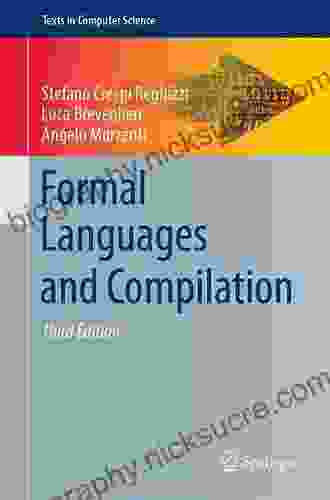
 Ryan FosterFormal Languages and Compilation: Unveiling the Theoretical Underpinnings of...
Ryan FosterFormal Languages and Compilation: Unveiling the Theoretical Underpinnings of...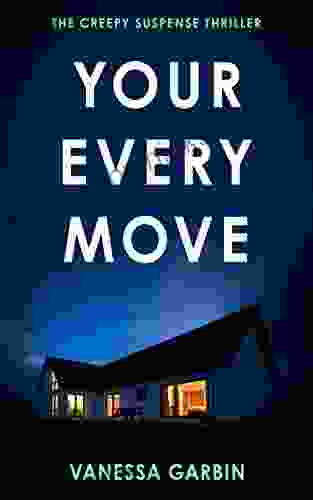
 Preston SimmonsYour Every Move: The Creepy Suspense Thriller That Will Keep You on the Edge...
Preston SimmonsYour Every Move: The Creepy Suspense Thriller That Will Keep You on the Edge... Jackson HayesFollow ·18.5k
Jackson HayesFollow ·18.5k Italo CalvinoFollow ·10.8k
Italo CalvinoFollow ·10.8k Everett BellFollow ·8.1k
Everett BellFollow ·8.1k Dan HendersonFollow ·10.4k
Dan HendersonFollow ·10.4k Evan HayesFollow ·19.6k
Evan HayesFollow ·19.6k Joel MitchellFollow ·9.2k
Joel MitchellFollow ·9.2k Edgar HayesFollow ·12.2k
Edgar HayesFollow ·12.2k David BaldacciFollow ·13k
David BaldacciFollow ·13k

 Israel Bell
Israel BellEmbark on an Epic 160-Mile Expedition for Charity on the...
Prepare yourself for an...
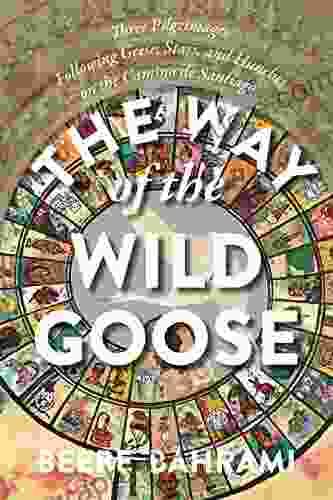
 Josh Carter
Josh CarterThe Way of the Wild Goose: A Journey of Embodied Wisdom...
The Way of the Wild Goose is an ancient...

 Allen Parker
Allen ParkerMastering the Art of Bean Fly Casting: A Comprehensive...
Fly fishing,...
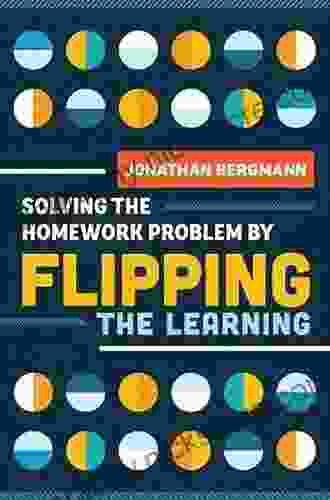
 Aaron Brooks
Aaron BrooksSolving the Homework Problem by Flipping the Learning
What is flipped...

 Fletcher Mitchell
Fletcher MitchellThe Jane Butel Library: A Renewed Source of Knowledge and...
The Jane Butel...
4 out of 5
| Language | : | English |
| File size | : | 2222 KB |
| Text-to-Speech | : | Enabled |
| Screen Reader | : | Supported |
| Enhanced typesetting | : | Enabled |
| Print length | : | 230 pages |


